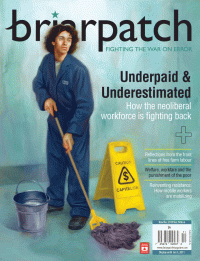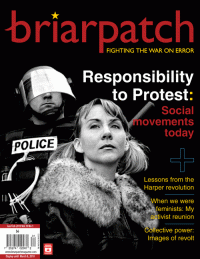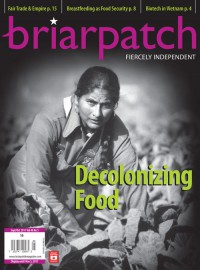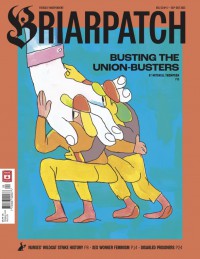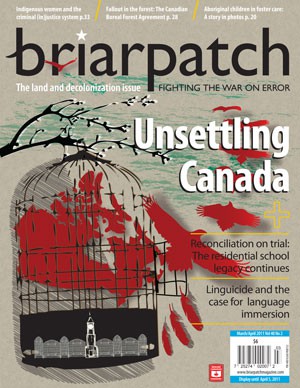
Unsettling Canada
As government and industry continue to annex and desecrate Indigenous lands for resource extraction, housing developments, highways and tourist destinations, how can we organize a more effective anti-colonial resistance? What are the current sites of contestation in Canada, and what is the role of non-native allies in supporting these struggles? This issue explores the state of the ongoing colonial project in Canada, and how we situate ourselves in the struggle for decolonization.
-
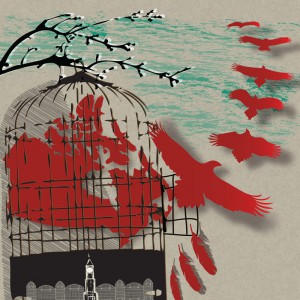 Magazine
MagazineLetter from the editor
It wasn’t until 1996 that Canada’s last residential school was shuttered on the Gordon First Nation reserve 100 kilometres north of Regina, marking the end of one of the most sordid chapters in Canada’s colonial history.
-
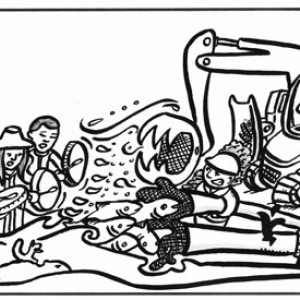 Magazine
MagazineOil and water don’t mix
On September 8, 2010, more than 500 people marched through Dakelh Territory in downtown Prince George, British Columbia, in a protest led by the Carrier Sekani Tribal Council against the Enbridge Northern Gateway pipeline project.
-
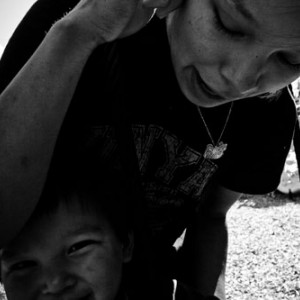 Magazine
MagazineBetween crisis and care
In the winter of 2009, Drake and Jowje were expecting their third child. An Aboriginal couple in their early twenties, Drake was working construction whenever work was available while Jowje cared for their two boys — Hunter, age three, and Toby, eight months. Lucy was born in the spring.
-
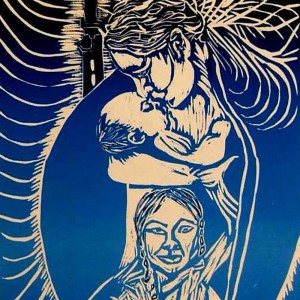 Magazine
MagazineReconciliation on trial
Nearly three years after Stephen Harper’s historic apology to residential school survivors, Canada’s iniquitous treatment of Indigenous children lives on. With over 27,000 First Nations children currently in foster care, there are more than three times as many Indigenous youth in state care than at the height of the residential school era in the 1940s.
-
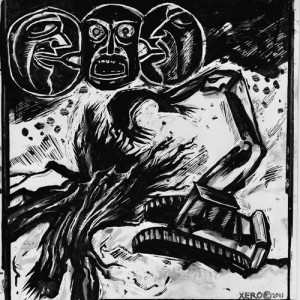 Magazine
MagazineFracturing solidarity
When representatives from environmental organizations took the stage last May together with logging industry groups to promote what they billed as a new deal to protect Canada’s boreal forest, the announcement came as a surprise to Indigenous peoples across the country.
-
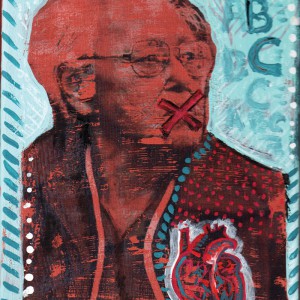 Magazine
MagazineLinguicide
While it is assumed that linguicide died with the closure of the last residential school in 1996, in truth it continues as a covert policy into the present. As Roland Chrisjohn stated, “residential schools never ceased operation; they merely changed their clothes, and went back to work.”
-
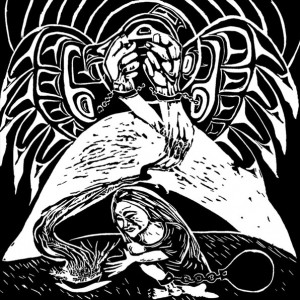 Magazine
MagazineCriminal (in)justice
Gillian Balfour is the author of two important books addressing racism and incarceration in Canada, including Criminalizing Women: Gender and (In)Justice in Neoliberal Times, which she co-edited with Dr. Elizabeth Comack. She is an associate professor in sociology at Trent University in Peterborough, Ontario, specializing in areas of violence against women and the incarceration of Indigenous women in Canada.
-
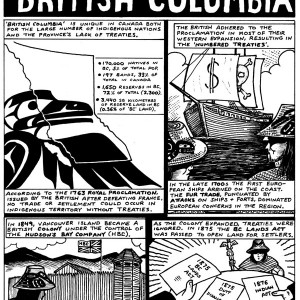 Magazine
MagazineAn anti-colonial history of “British Columbia”
“British Columbia” is unique in Canada for both the large number of Indigenous nations and the province’s lack of Treaties. According to the 1763 Royal Proclamation, issued by the British after defeating France, no trade or settlement could occur in Indigenous territory without treaties.
-
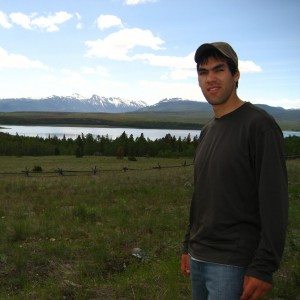 Magazine
MagazineWe say no
Last November, hundreds of people gathered in the community of Tlet’inqox to thank the land defenders and praise the federal government’s decision to turn down Taseko Mines’ Prosperity project, a proposed gold and copper mine on Tsilhqot’in territory in northern B.C.

